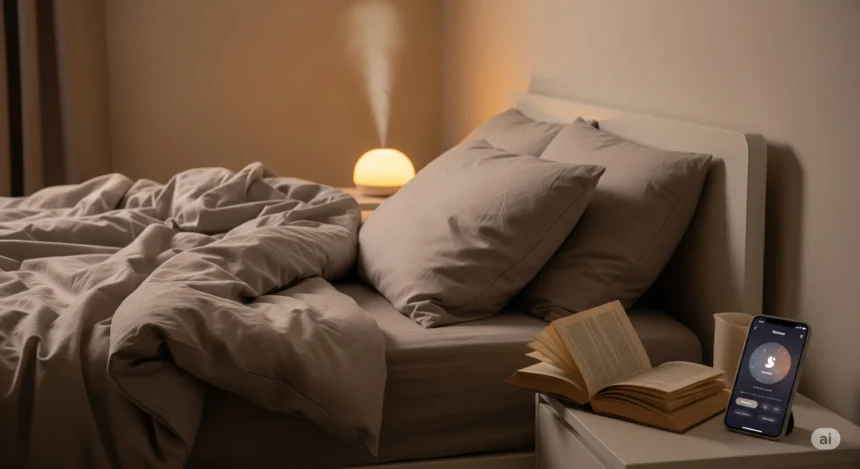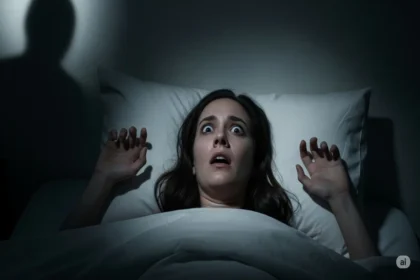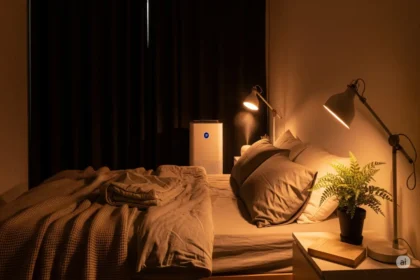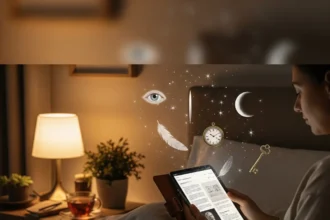Ah, sleep. That elusive, often undervalued cornerstone of our well-being. We chase deadlines, scroll endlessly, and pack our days to the brim, often sacrificing the very thing that recharges us. Yet, when we find ourselves dragging through the day, mentally foggy, and emotionally frayed, the answer often lies in the quality—or lack thereof—of our nightly slumber. This isn’t just about clocking in seven to nine hours; it’s about optimizing those hours, about leveraging clever strategies that coax our bodies into deeper, more restorative rest. In essence, it’s about discovering the ultimate sleep hacks that can transform your nights and, consequently, your days.
For years, I treated sleep like a necessary inconvenience. A few hours here, a few there, and the occasional weekend lie-in to “catch up.” But the cumulative toll was undeniable. My creativity waned, my patience thinned, and a persistent brain fog became my unwelcome companion. It wasn’t until I began diving deep into the fascinating science of sleep that I realized I wasn’t just missing out on rest; I was missing out on a fundamental biological imperative that dictates everything from our mood to our metabolism. The world, I discovered, is full of people, just like me, who are desperate for a good night’s sleep, often unknowingly sabotaging their own efforts.
The Hidden Architecture of Rest: Understanding Sleep Science
Before we delve into the practical “hacks,” it’s crucial to understand the intricate machinery of sleep. It’s far more complex than simply shutting off for the night. Our sleep cycles are governed by two primary forces: the homeostatic sleep drive, which builds up the longer we’re awake (think of it like a “sleep pressure” gauge), and the circadian rhythm, our internal 24-hour clock that tells us when to be awake and when to be asleep.
During the night, we cycle through different stages of sleep: NREM (Non-Rapid Eye Movement) stages 1, 2, and 3, and REM (Rapid Eye Movement) sleep. NREM Stage 3, often called “slow-wave sleep” or “deep sleep,” is a powerhouse of physical restoration. It’s when growth hormones are released, cellular repair is in full swing, and our immune system gets a significant boost. REM sleep, on the other hand, is the stage of vivid dreaming, crucial for emotional regulation, memory consolidation, and cognitive processing. Disruptions in any of these stages can have cascading effects on our waking lives.
Dr. Matthew Walker, a leading neuroscientist and author, eloquently describes sleep as “the single most effective thing we can do to reset our brain and body health each day.” He emphasizes that chronic sleep deprivation isn’t just about feeling tired; it fundamentally undermines our physical health, cognitive abilities, and emotional resilience. It’s an invisible epidemic, silently eroding our capacity to thrive.
Take Mark, a software engineer in his late 30s. He prided himself on pulling all-nighters, fueled by endless cups of coffee. Initially, he thought it was just part of the job. But soon, his once sharp coding skills began to falter, riddled with errors. He found himself increasingly irritable with his team and struggled to recall basic project details. “I thought I was being a hero, burning the midnight oil,” he confessed to me, “but in reality, I was just making myself dumber and angrier. My body was screaming for sleep, and I just kept ignoring it.” Mark’s story highlights the profound impact of neglecting sleep and the urgent need for strategic interventions.
The Toolkit for Deeper Slumber: Practical Sleep Hacks
So, how do we hack our way to better rest? It’s not about magic pills, but about informed, consistent changes that align with our body’s natural rhythms. Here are some of the most potent, scientifically backed sleep hacks you can integrate into your life:
1. The Circadian Anchor: Master Your Schedule:
This is perhaps the most fundamental sleep hack. Our circadian rhythm thrives on consistency. Going to bed and waking up at roughly the same time every day, even on weekends, reinforces this rhythm. Imagine your internal clock as a finely tuned instrument; erratic sleep schedules are like constantly jostling it, throwing it out of sync. This consistent routine helps regulate the release of melatonin, the “darkness hormone” that signals to your body it’s time to wind down. Initially, it might feel rigid, but over time, you’ll find yourself naturally feeling sleepy around your bedtime and waking up refreshed without an alarm.
2. The Light Diet: Befriend Darkness, Embrace Morning Light:
Light is the most powerful regulator of our circadian rhythm. Here’s the hack:
- Morning Light: Expose yourself to bright, natural light first thing in the morning. Step outside, open the curtains wide. This signals to your brain that it’s daytime, helping to suppress melatonin production and promote alertness. Think of it as hitting the “reset” button on your internal clock.
- Evening Darkness: As evening approaches, dim the lights. More critically, minimize exposure to blue light from electronic screens (phones, tablets, computers, LED TVs). Blue light, with its short wavelength, mimics daylight and powerfully suppresses melatonin. Implement a “digital curfew” at least 1-2 hours before bed. Consider blue light-blocking glasses if you absolutely must use screens. This simple act can significantly boost natural melatonin production, preparing your body for sleep.
3. The Temperature Tango: Cool for Comfort:
Our core body temperature naturally dips as we prepare for sleep. A slightly cooler sleep environment facilitates this drop, making it easier to fall and stay asleep. The ideal bedroom temperature is typically between 18-20 degrees Celsius (65-68 degrees Fahrenheit). A warm bath or shower about 90 minutes before bed can also be a surprising hack. While it raises your body temperature initially, the subsequent cooling as you step out and get ready for bed mimics the natural temperature drop necessary for sleep onset.
4. The Fueling Strategy: Smart Sips and Bites:
What and when you consume can make or break your sleep.
- Caffeine Cut-off: Caffeine has a half-life of several hours, meaning half of it is still in your system hours after consumption. Even if you don’t feel “wired,” it can disrupt the deeper stages of sleep. Aim to cut off caffeine by early afternoon (e.g., 2 PM).
- Alcohol’s Deception: While alcohol might initially make you feel drowsy, it metabolizes into compounds that fragment sleep later in the night, particularly suppressing REM sleep. Avoid alcohol several hours before bed.
- Dinner Timing: A heavy, rich, or spicy meal close to bedtime can lead to indigestion and discomfort, making it harder to fall asleep. Aim for your last substantial meal at least 2-3 hours before bed. If you need a snack, opt for something light and easily digestible, like a banana or a small handful of almonds.
5. The Wind-Down Ritual: Your Pre-Sleep Symphony:
Our bodies need a clear signal that it’s time to transition from the active day to restful night. Create a consistent, calming pre-sleep routine. This isn’t about productivity; it’s about relaxation. This could involve:
- Reading a physical book (not on a backlit device).
- Listening to calming music or a podcast.
- Gentle stretching or restorative yoga.
- Practicing mindfulness meditation or deep breathing exercises.
- Journaling to offload racing thoughts.
Sarah, a busy marketing manager, found this hack transformative. “My brain would just keep rehashing the day’s events,” she shared. “But starting a consistent evening routine—a warm shower, then reading a chapter of a novel—it’s like a lullaby for my mind. It’s my cue to switch off.”
6. The Bedroom Sanctuary: Declutter for Deeper Dreams:
Your bedroom should be a dedicated temple of sleep and intimacy. Remove anything that stimulates your mind or reminds you of work or stress. This means no TVs, no work desks, and ideally, no glowing electronic devices. Keep it dark, quiet, and tidy. A cluttered room often leads to a cluttered mind. Invest in a comfortable mattress and pillows that support your body. Even subtle noises can disrupt sleep, so consider earplugs or a white noise machine if needed.
7. Strategic Napping: The Power Nap Primer:
Napping can be a double-edged sword. While a short, strategic nap can boost alertness and performance, long or late-afternoon naps can disrupt nighttime sleep. The optimal power nap is typically 20-30 minutes, ideally taken in the early afternoon (e.g., between 1 PM and 3 PM). This can clear “sleep pressure” just enough to refresh you without throwing off your night’s sleep. Avoid napping for longer durations or too close to your regular bedtime.
8. The Exercise Edge: Move to Sleep Soundly:
Regular physical activity is a well-established sleep enhancer. Exercise helps reduce stress, improves mood, and can lead to deeper, more restorative sleep. However, timing matters. Vigorous exercise too close to bedtime can be stimulating. Aim to complete your intense workouts at least 3-4 hours before you plan to go to sleep. Morning or early afternoon exercise is generally best for promoting healthy sleep patterns. Even a brisk walk during your lunch break can contribute positively.
Beyond the Hacks: The Mindset Shift
Ultimately, these sleep hacks aren’t just isolated tricks; they represent a fundamental shift in how we view and prioritize sleep. It’s about respecting our biology, recognizing that sleep isn’t a passive state but an active, vital process. It’s about cultivating patience and consistency, understanding that true change doesn’t happen overnight, but through persistent effort.
There will be nights when sleep feels elusive, when your mind races despite your best efforts. On those nights, instead of lying in bed stressing, get up after 20-30 minutes. Go to another room and engage in a quiet, non-stimulating activity (read a book, listen to soft music) until you feel genuinely sleepy, then return to bed. This technique, a core principle of Cognitive Behavioral Therapy for Insomnia (CBT-I), helps break the association between your bed and wakefulness.
The journey to better sleep is a deeply personal one, a continuous exploration of what works best for your unique physiology and lifestyle. But by embracing these scientifically-backed sleep hacks, you’re not just investing in more hours of shut-eye; you’re investing in a sharper mind, a healthier body, and a more joyful, resilient spirit. So, dim the lights, silence the screens, and prepare to embark on a nightly adventure of profound restoration. The best sleep of your life is not a distant dream; it’s a series of conscious choices, waiting to be made.
Disclaimer: The information provided in this article is for general informational purposes only and does not constitute medical advice. It is not a substitute for professional medical advice, diagnosis, or treatment. Always seek the advice of your physician or other qualified health provider with any questions you may have regarding a medical condition. Never disregard professional medical advice or delay in seeking it because of something you have read on this website.














